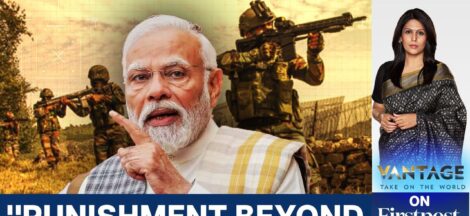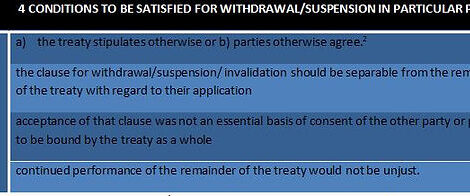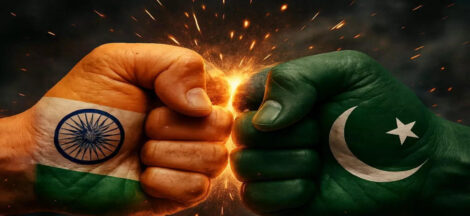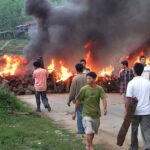In 2018, I wrote the following piece for The Leaflet’s Independence Day special issue.
I too am one of Midnight’s Children. Having been born before Independence, memories of Partition are alive in my mind, and so are the stories we had heard from our parents who migrated to the new-born Indian nation-state as refugees from what overnight became Pakistan. We are the children of refugees.
I remember vividly my home in Karachi, now in Pakistan, and have often longed for the home of my childhood. Here in India, I have at times felt stateless. States are organised on linguistic lines and we Sindhis have no state to call our own (at least judging from the same parameter, language). Having no linguistic state, while being a limitation, is also deeply liberating. It tells me that allegiance, a sense of belonging, that feeling at the core of our very souls— that does not come from Statehood and language alone.
It has been often said that the 21st century is the century of refugees. Refugees of displacement due to so-called development, refugees of religious hatred, of political rejection forced to seek asylum, the prisoners of conscience, of ‘illegal immigrations’ across tyrannical, inhumane borders, refugees escaping terrorist and military regimes, climate and disaster refugees. The list just goes on and on.
My life has been a long struggle (some would say battle) in the court of law, but sometimes when I hear our ruling politicians say, ‘Muslims must go back to Pakistan where they came from’— I wonder if I too will be asked to ‘go back home’, since I too once came from across the border.
And then I realise: But I was born a Hindu. So where is my home? Will I too be asked to ‘go back home’, or will I be spared because my parents were Hindu refugees who migrated to India in the wake of Partition?
It is now for the first time in 73 years that I am made to remember my Hindu origins from across the border. But there is no comfort in it, only pain for the republic of India, which is in danger of losing its secular foundational principles, its birth pangs of great ideals, of pluralism and interfaith harmony. Will I be happy in a Hindu republic? No. I will be forever living with an ‘enemy’ or the ‘Other’—constructed by law not by life. Law is not meant to construct identity; it is meant to respect identity. At age 73, the age of the Indian Republic, I can only offer a defence of the secular Constitution of India with my own experience of having lived a moderately happy life … until now.
As I reflect on this piece written in 2018, I see that life in India has become unlivable for many of my fellow citizens as it has been for me.All those who disagree with the policy of the ruling party and protest in howsoever a small a way have a first information report (FIR) registered against them, with the Damocles’ Sword of arrest perpetually hanging over their heads.
Crony capitalism has established itself firmly and we see one name all around us at airports and ports, and in coal mines, even in the electricity bills that are delivered at our doorsteps. Big Brother is omnipresent, and wants us to believe he is omnipotent too.
In Manipur, the mob has taken the place of the State, this despite the fact that the ruling party in the state and at the Centre are the same. Seventeen FIRs have been lodged for sexual violence against woman of the Kuki-Zo community in a situation of near civil war, leading the Supreme Court to issue distress suomotu intervention. Journalists and academics are put behind bars for just doing their job of reporting facts from the ground, making a mockery of our right to freedom of speech and expression.
At the state-level, ministers who happen to belong to any party other than the Bharatiya Janata Party (BJP) are arrested and denied bail and ‘kept out of circulation’ till they either bend to the will of the Supreme Leader and his cohort or are no longer a danger to the ruling cabal.
The 2019 Lok Sabha elections reinforced the majoritarianism that had already started to take roots in the country. It made the position of many of us insecure. In addition to minorities based on religion, we saw the emergence of minorities based on ideology being severely attacked by the State.
The courts have, by and large, remained mute spectators to the rise of this phenomenon. From political opponents to students, from religious minorities to women facing sexual violence, no one is spared the violence of the mob.
The map of India has been redrawn. Jammu and Kashmir (J&K) ceased to exist as a state and metamorphosed into two Union territories. One of them is supposed to be a Union territory with a legislature but it continues to be under governor’s rule till this day.
What irony that the Supreme Court is hearing a challenge to the validity of the amendments ending the state’s autonomous character within the Indian Union, guaranteed to it under Article 370 of the Indian Constitution, and its downgrading and breaking up into two Union territories even while the question of validity of governor’s rule remains undecided!
Recall that the Union government gave consent to itself acting on behalf of the state assembly during a period of governor’s rule to abrogate Article 370 and to apply the entire Constitution of India to J&K.
If this can happen in one state, why not in others? India can be converted from a federal State to a unitary State simply by use of numbers in the Parliament. We have become refugees in our own country, we are ‘internally displaced’ not by climate change but by the changing political climate, not by dams but by the mob, held prisoner not for any crimes but for having a conscience. From the distress migration of Covid to the distress migration to escape mob violence, the working people of the country have no place to call home.
How can one celebrate Independence Day in this situation? By saying a silent prayer for those who are behind bars for no other reason save that they dared to protest the unjust policies of an authoritarian State. By protecting and defending the human rights and right to life of us all. By being inspired by the values of the Constitution of India. By challenging every anti-constitutional action, law or policy of the State. By reclaiming the democratic space of civil society. By being stubborn in the quest for justice. (IPA Service)
Courtesy: The Leaflet




 Fierce Debate Is On Among The Feuding Tribes On Future Status Of Manipur
Fierce Debate Is On Among The Feuding Tribes On Future Status Of Manipur 